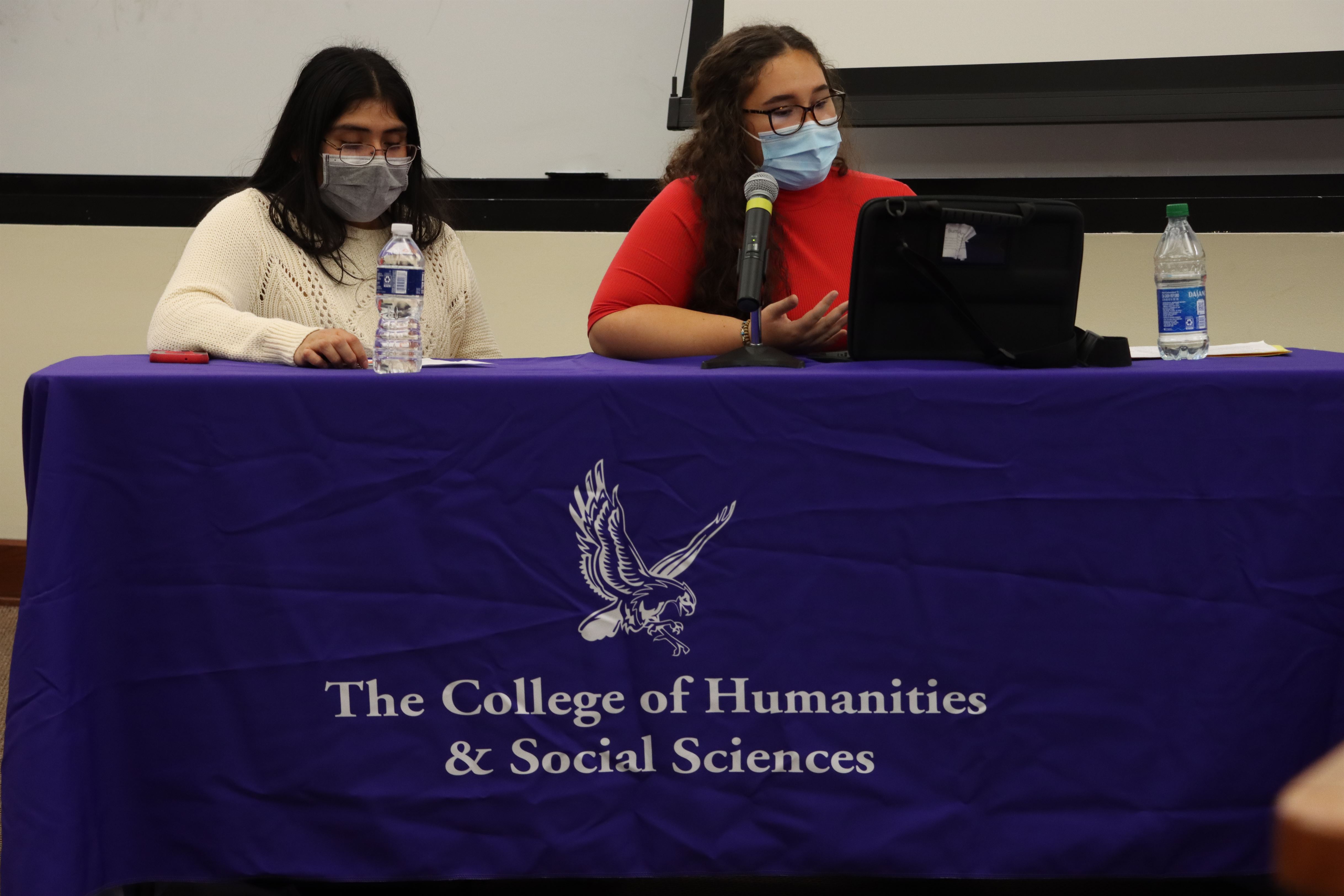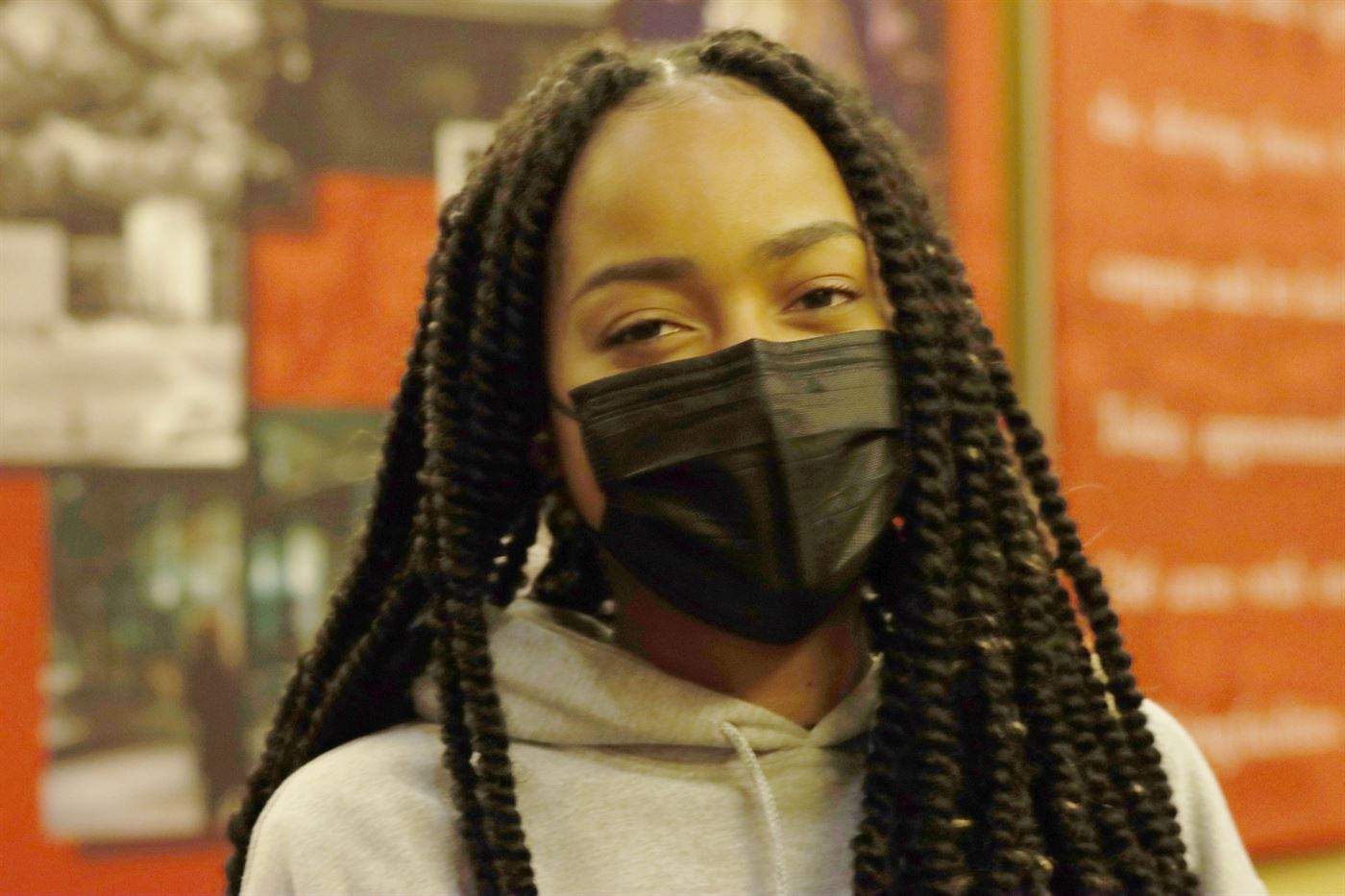Montclair State University held a campus-wide discussion on Native Land Acknowledgment in person and via Zoom on Nov. 18. People from different tribes, students and other guests came to support the acknowledgment of Native land.
The event started with Montclair State President Jonathan Koppell saying a few words about the history of Indigenous people and discussing the action that needs to be taken.
“One of the most central issues that we have to face as a country, one element of the past that we have to reconcile ourselves with is genocide of Indigenous Americans that is inextricably a foundational element of this country,” Koppell said. “The genocide of cultural and literal Native Americans is one aspect of our history that is shamefully papered over.”
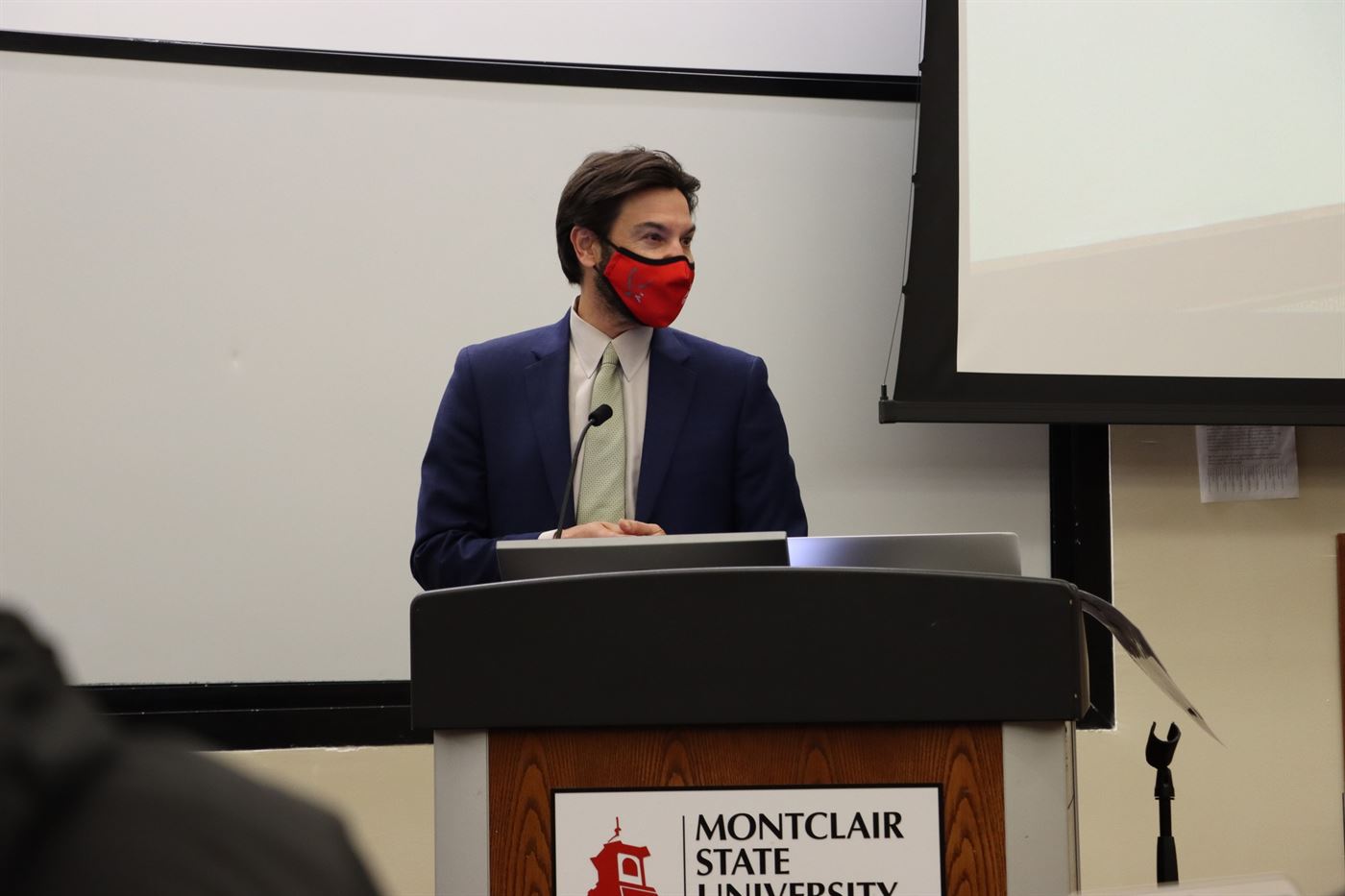
Montclair State President Jonathan Koppell, emphasizes the urgent need of Native land acknowledgment.
Lynise Olivacce | The Montclarion
Koppell further discussed his plans for Montclair State regarding the topic.
“Let’s move from the discussion phase to the implementation phase and I want to go much more than a statement; let’s build a program around it, let’s make Montclair State University the leading institution that’s taking up the banner of acknowledging this history, celebrating it and building it into the institution,” he said.
Dr. Lisa Brooks, a panelist at the event and citizen from the Choctaw Nation of Oklahoma, moved to New Jersey and has been an adjunct professor at Montclair State for four years.
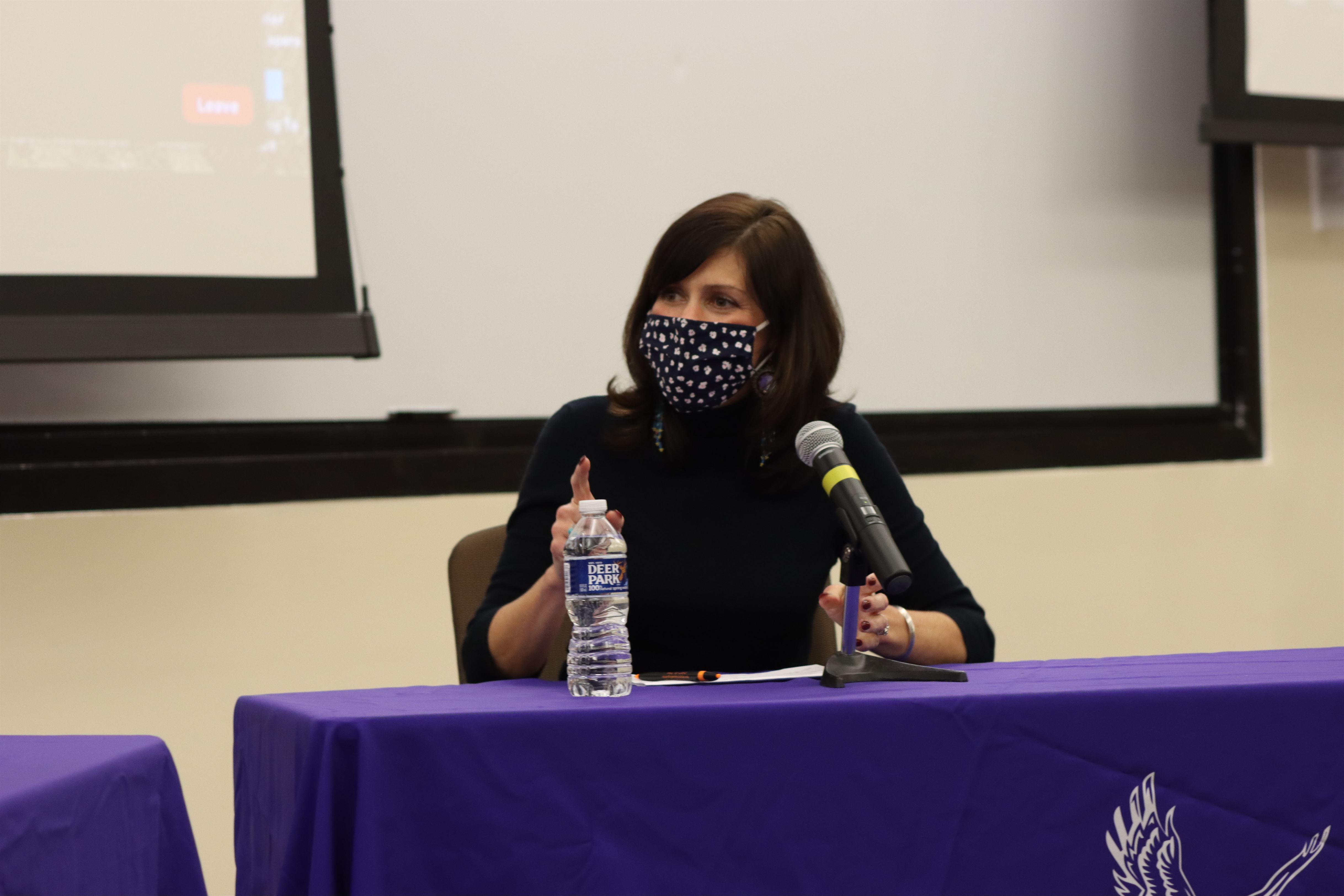
Dr. Lisa Brooks, a citizen from the Choctaw Nation of Oklahoma, explains the importance of land acknowledgement.
Lynise Olivacce | The Montclarion
“Land acknowledgments are a big part of where my tribe is now,” Brooks said. “[Due to a] Supreme Court decision, the Choctaw Nation is not just a territory – it has true jurisdiction legally over all of our area, which is a life-changer. Having land acknowledgment means that there is support from the community to say, ‘We understand and we recognize that this land did not belong to us in the first place.’”
Dr. Rev. John Norwood, a panelist and member of Nanticoke Lenni-Lenape in New Jersey, emphasized how the history of Native Americans is often misunderstood and how Native land acknowledgment fixes that.
“Having land acknowledgment points to the fact that the history of the land did not begin with colonial contact, with the exploration by Europeans,” Norwood said. “[Native land acknowledgment] honors the original people. It’s corrective of the miseducation that occurred for centuries and has caused damage and presumption and laid the groundwork for the continuation of misunderstanding. [Native] land acknowledgment is the beginning and not the end of that process.”
Norwood further explained that Native land acknowledgment is about engagement.
“Those institutions who wish to have a land of acknowledgment need to understand that they need to be engaging the people that they want to acknowledge,” Norwood said. “It’s not nearly looking into the past but understanding that those people continue into the present. The preparation of the language and what goes into it needs to be done in some cooperative way and engaging the tribe and understanding what would be offensive and some language that could be problematic.”
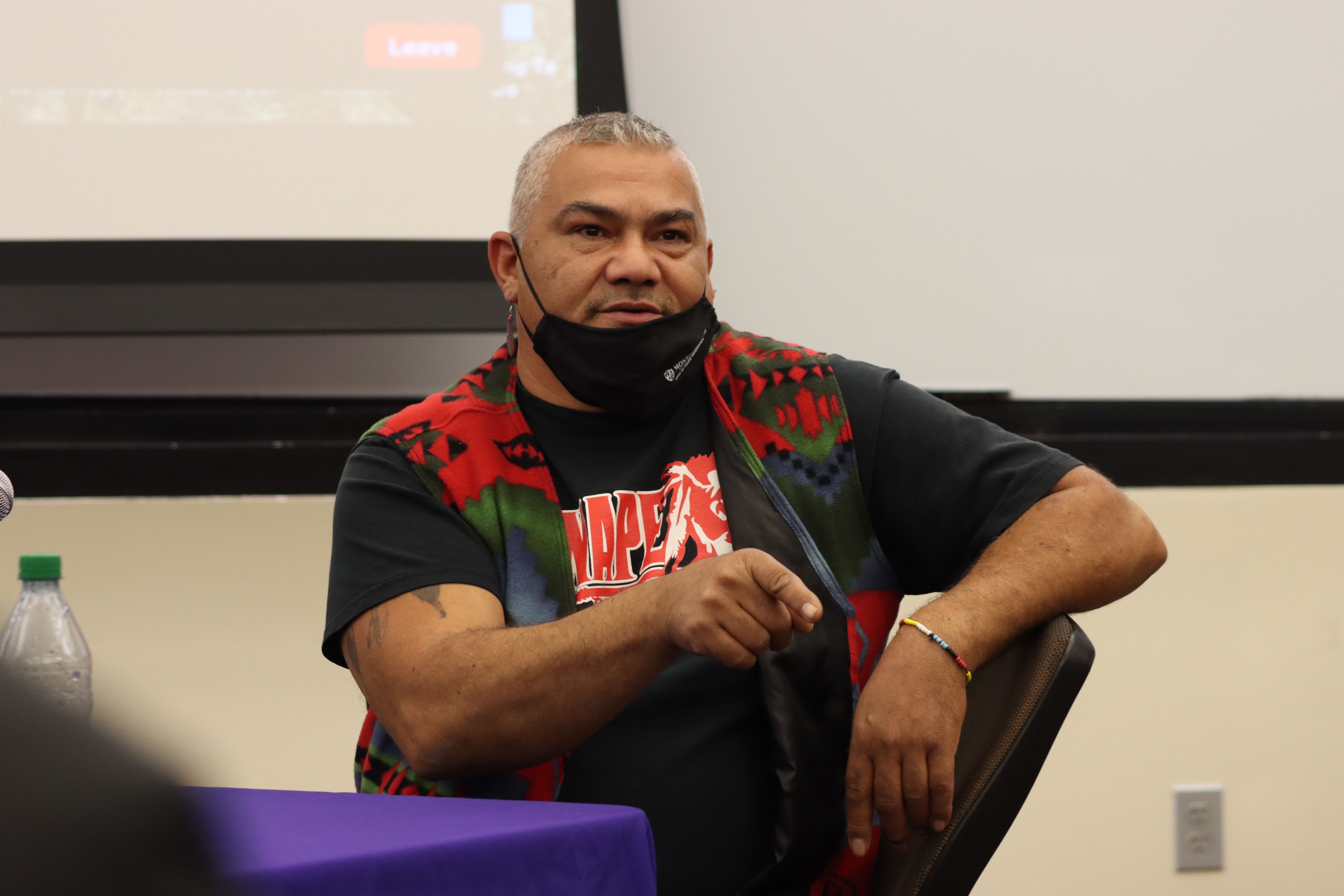
The Turtle Clan Chief, Vincent Mann, speaks about the importance of Native American history being taught in schools and how it is lacking. Lynise Olivacce | The Montclarion
Vincent Mann, a panelist and the Turtle Clan Chief of Ramapough Lenape in New Jersey, emphasized how Native Americans are still active today and how it’s imperative to respect that.
“It is time for us to understand that Native Americans are still here from one end of this continent to the other and in every single direction that there is,” Mann said. “We have to actually understand that, to know that the laws and everything that has been created in this country also applies to us.”
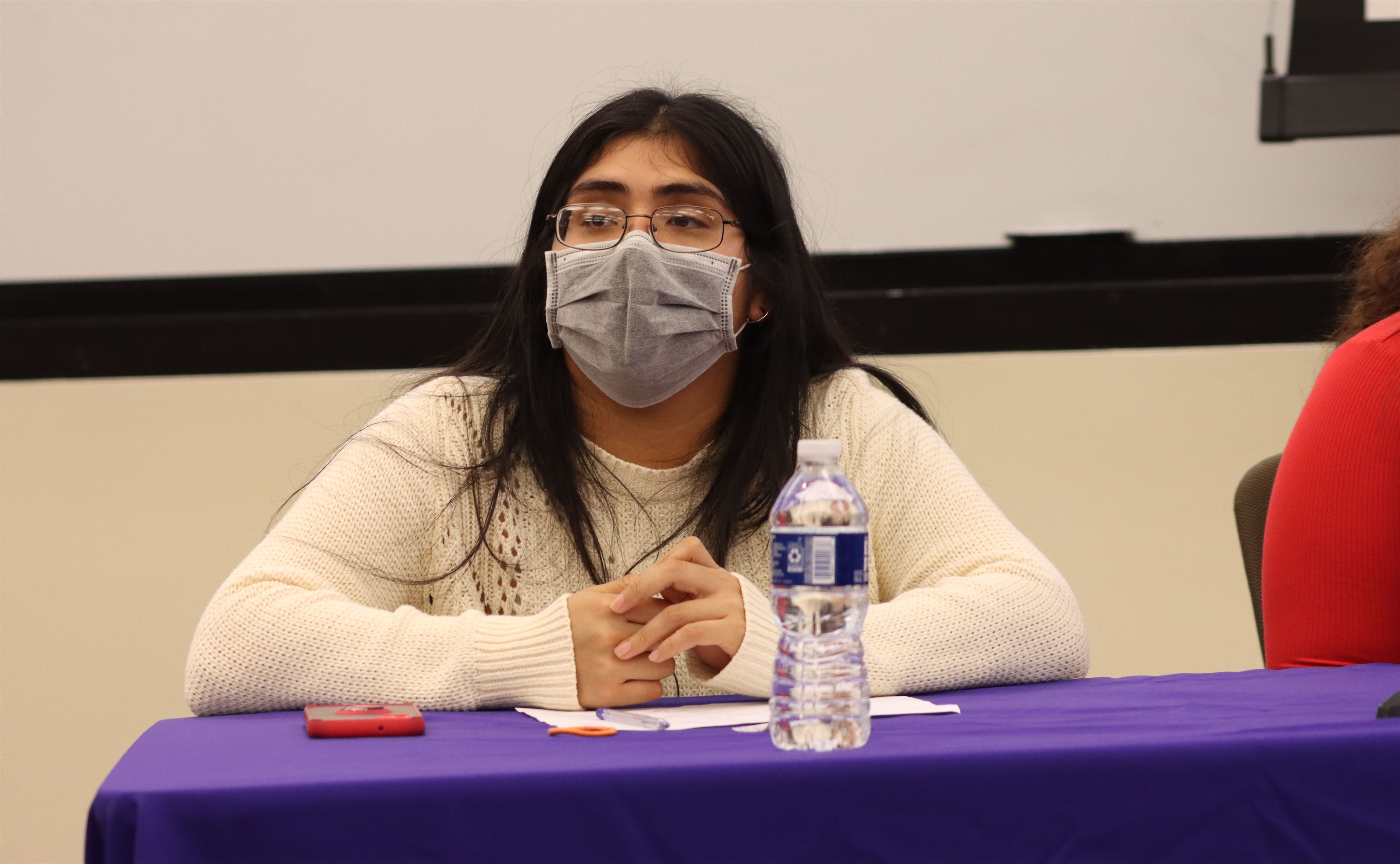
Martinez, a senior linguistics major, explains how being at the event plays a personal factor.
Lynise Olivacce | The Montclarion
Daine Ocampo Martinez, a senior linguistics major and moderator of the event, was invited to speak by her professor, Mark Clatterbuck. She grew up in Mexico, where she saw much of the poverty and discrimination Indigenous people in the South faced.
“My dad was a seasonal worker in the U.S. so he would go to Florida and Arizona and hang out in the reservations here,” Martinez said. “He would tell me a lot of stories about Indigenous People [there]. This is important because if it weren’t for them, we wouldn’t exist. I feel like recognizing this social issue is the first step towards justice. I just hope that this social issue is not ignored.”
Brianna Dagostino, a Montclair State graduate and moderator of the event, is a member of the Nanticoke Lenni-Lenape tribe in South Jersey. She urged for more recognition of Native American land, particularly the Lenape and Ramapough Powhatan land of New Jersey, from universities.
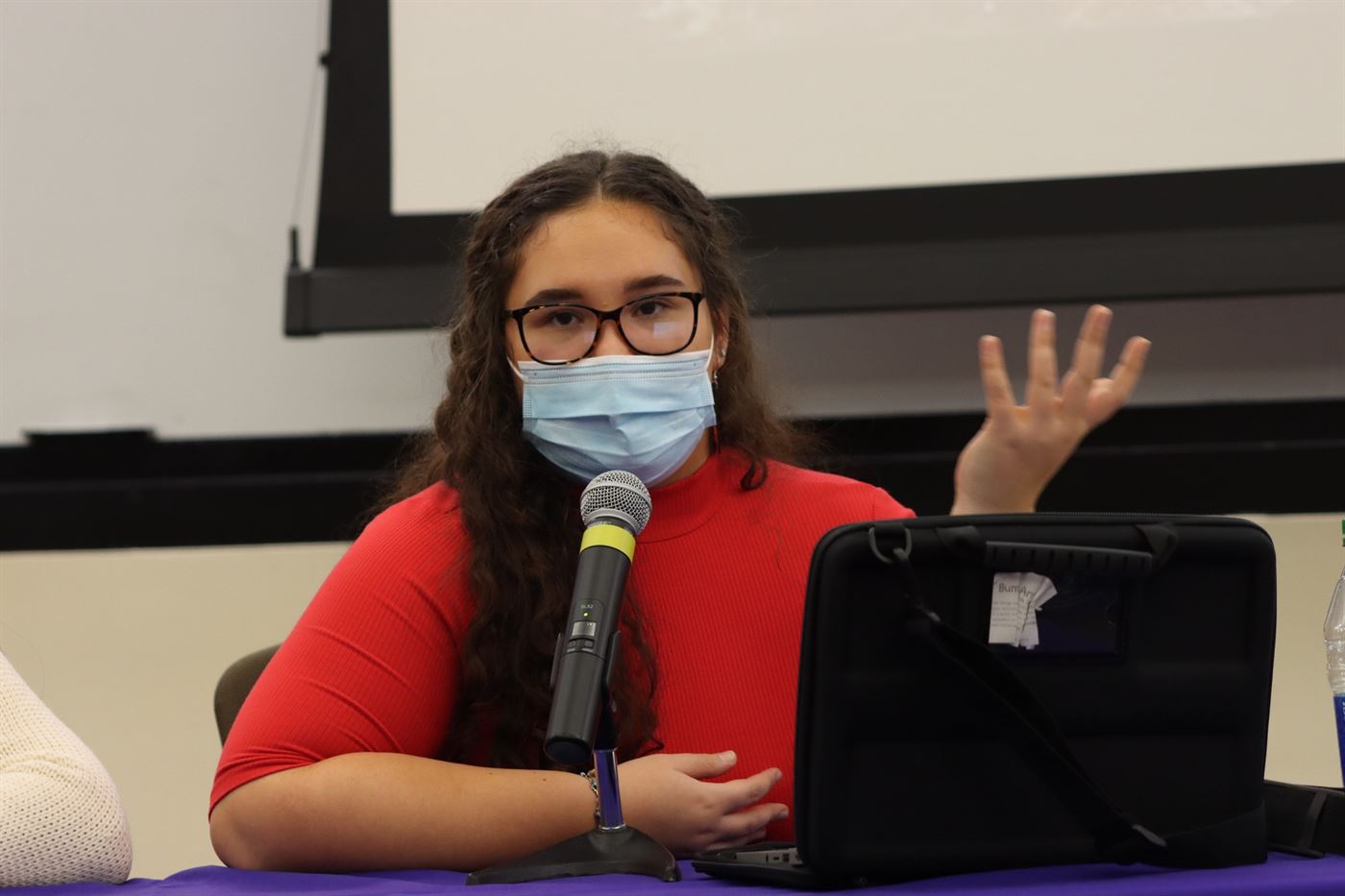
Dagostino, a member of the Nanticoke Lenni-Lenape tribe in South Jersey, urges for more universities to acknowledge Native land.
Lynise Olivacce | The Montclarion.
“I hope [students] take active steps to acknowledge and respect Native Americans and our land because we’re one of the least respected people even though we were here first,” Dagostino said. “But just Montclair [State] taking these steps that they’re doing to acknowledge land is already a great impact.”
Following the event, students expressed what they learned and how they were inspired by the discussion.
Jazmin Moses, a senior fashion studies major, felt well-informed after the event.
“It definitely informed me a lot more than what I already knew,” Moses said. “I think Indigenous people deserve a lot more recognition because I feel they do not get enough. I think it is very important for young people to stand up and make a change because we are the future.”
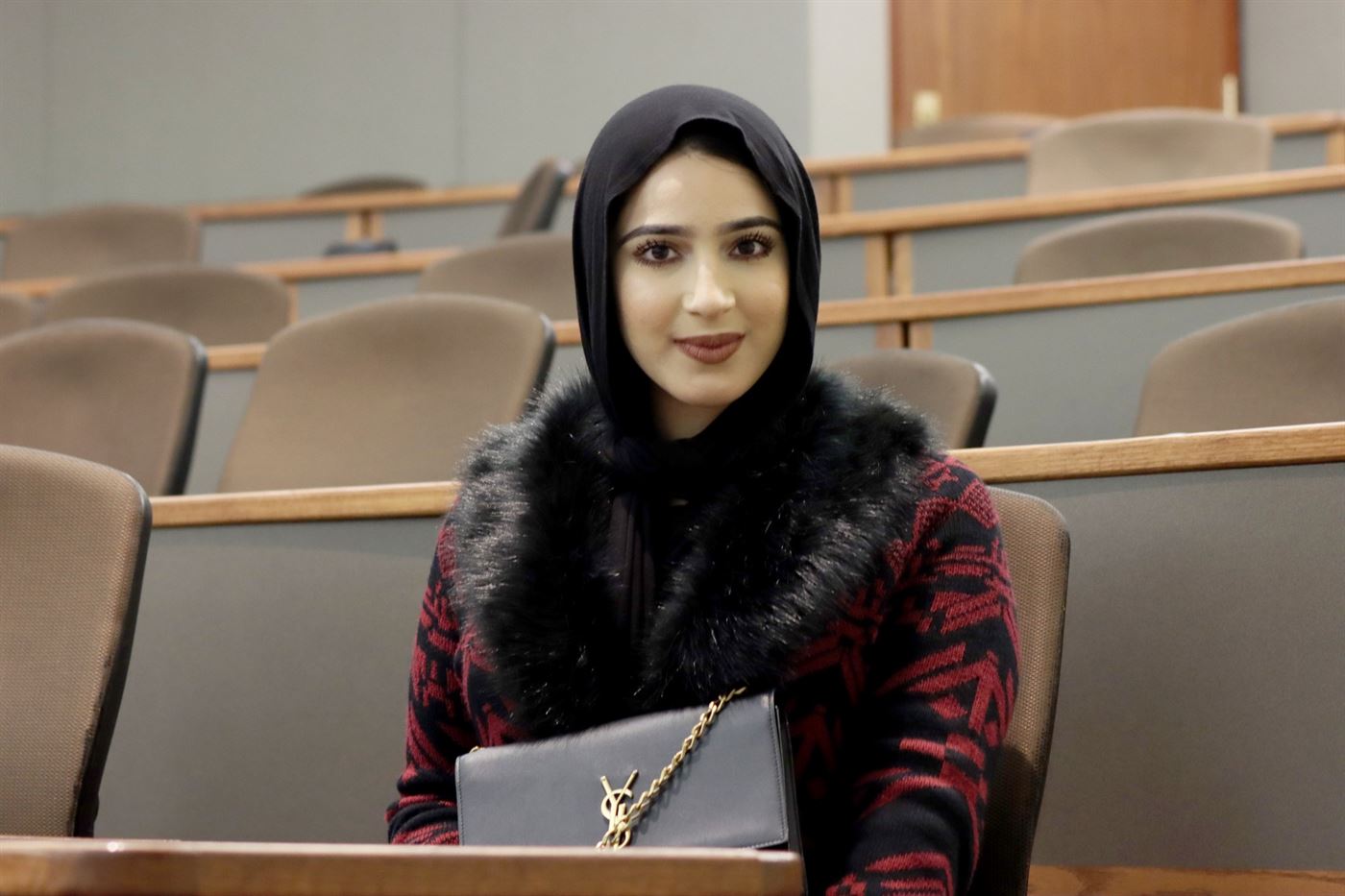
Jenin Haj expresses that the education system needs to do a better job implementing Native American history in its courses.
Lynise Olivacce | The Montclarion
Jenin Haj, a freshman undecided, gave her input on the event.
“I definitely learned more and I think it’d be beneficial for the students that [educators] actually teach this in the curriculum as opposed to the textbook versions that you see that teachers and professors are required to teach in their curriculum,” Haj said.
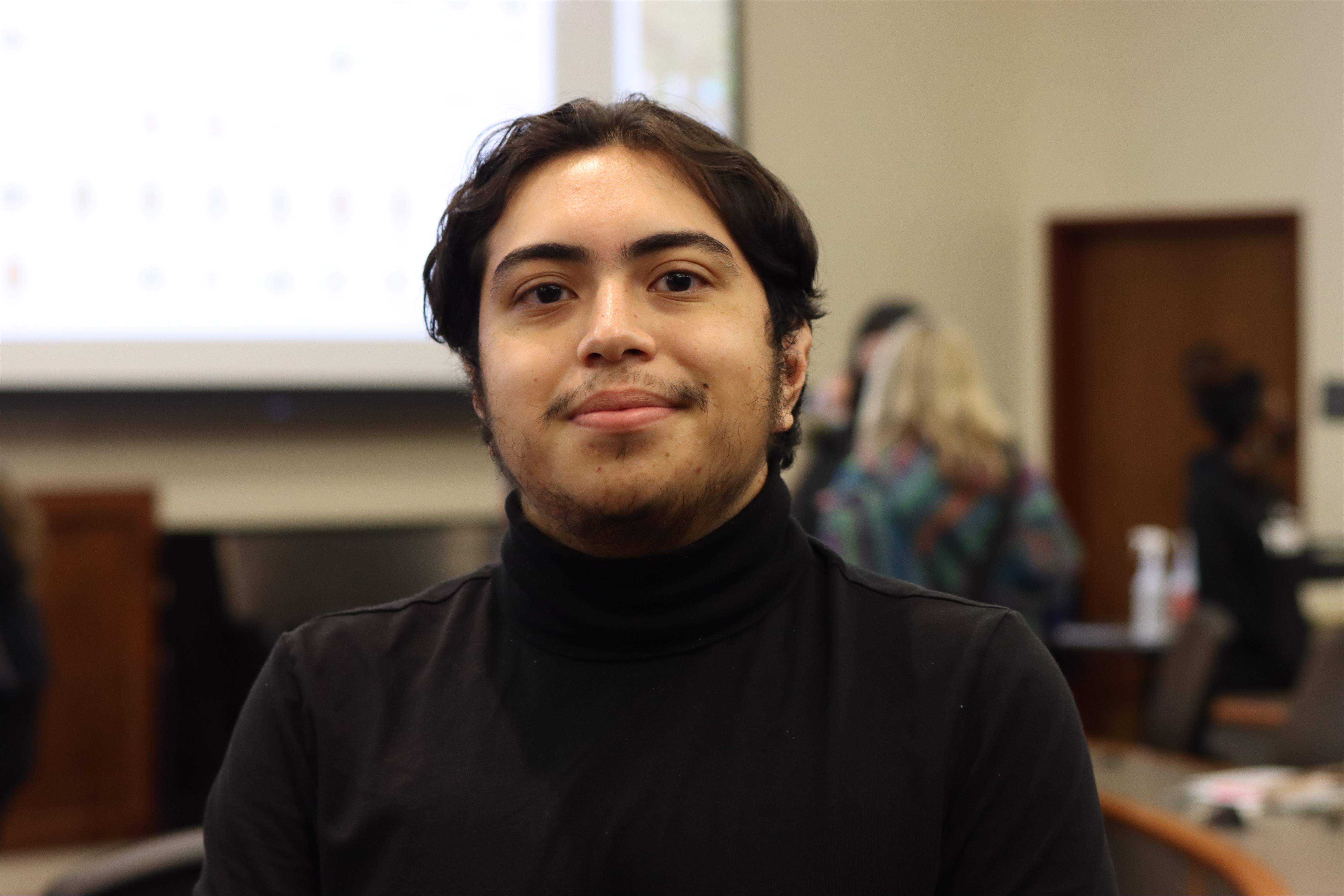
Tim Medina is grateful for what Montclair State is doing regarding Native land acknowledgement. Lynise Olivacce | The Montclarion
Tim Medina, a sophomore film and television digital media major, felt that this event taught him different things he didn’t know about Indigenous people.
“It really opened my eyes to the Indigenous People’s history and gave me a lot more knowledge on our background in relation to Montclair State,” Medina said. “It’s great to see that the school is taking the initiative in understanding and respecting this land. I feel like not enough recognition is spread about this, but today it was really great to see that more people are learning about Indigenous people.”

